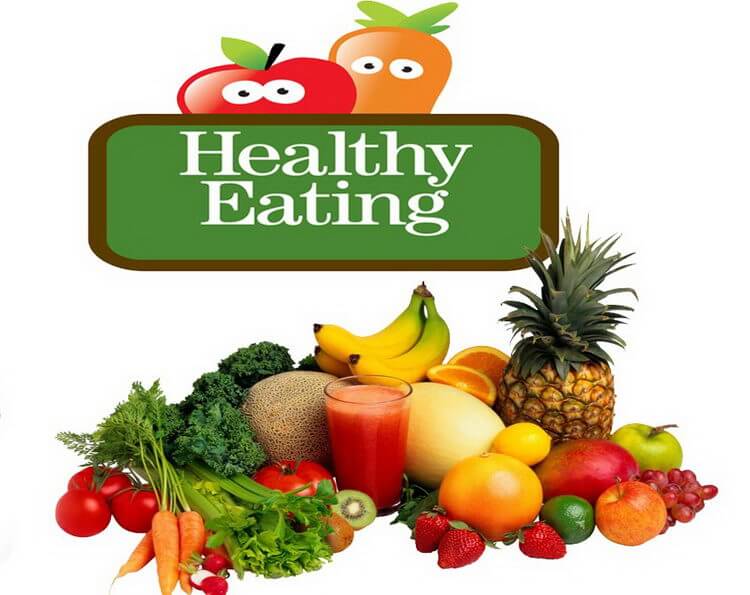8 Tips for healthy eating and lifestyle habits
We are what we eat, so why not eat the best? Healthy eating and lifestyle habits are a strong defense against the disease. Experts agree that we need an adequate but not excessive number of calories per day and that the bulk of these should come from complex carbohydrates, such as bread, rice, or potatoes. These foods are low in fat and provide vitamins and minerals. We should also be selective in the type of protein we eat, focusing on low-fat sources, such as lean meat, fish, and poultry, rather than fatty cuts of meat and full-fat dairy products.
Fruit and vegetables are a major source of vitamins and minerals— we should eat at least five portions a day. As important as getting into healthy eating habits is eliminating bad ones, such as consuming too much salt, sugar, and alcohol.

Here are eight tips for making healthy eating a part of your life.
◊ Balance Your Diet
Healthy meals should contain a balance of nutrients. For example, this meal of grilled salmon served with snow peas and potatoes provides a mix of high-quality protein (the salmon) and complex carbohydrates, fiber, vitamins, and minerals (the potatoes and snow peas). Eating balanced meals and small, healthy snacks helps to keep blood glucose stable.
◊ A Variety of Foods
Developing healthy eating habits is not difficult. Choosing to eat a wide variety of foods makes things much more comfortable. Most supermarkets are laid out with the fresh fruit and vegetables, the dairy foods, the bakery, and the meat and fish counters around the store's outer walls. The inner aisles tend to be where the processed foods are found. Nutritionists encourage shoppers to fill their carts with fresh foods first.
◊ Low-Fat Snacks
Regular snacks keep our energy levels up and may stop us from overeating at mealtimes. Choose snack foods, such as fruit, that are low in fat, salt, and sugar. This helps to reduce the risk of heart disease and maintain a healthy weight.(click to view the low fat diet)
◊ Diet And Exercise
To maintain a healthy weight, we need to balance the amount of food we eat with physical activity. A healthy weight helps prevent high blood pressure, heart disease, strokes, certain cancers, and diabetes. The more active we are, the more we can eat!
◊ Cut Down On Sugar
Sugar provides what nutritionists call empty calories—calories without any other nutrients such as vitamins or minerals. Many people consume unhealthy amounts of sugar.
Foods that are high in sugar, such as pie and cookies, also tend to be high in fat. When choosing sweet snacks, foods such as raisins are healthier than candy.
◊ Less Salt
A typical American diet contains far too much sodium, which is linked to high blood pressure. (click to view the low-sodium foods lists)
Table salt is one of the sodium sources, but 75 percent of the salt we eat comes from processed foods.
Nutritionists advise choosing reduced- and low-sodium versions of processed foods.
◊ Moderate Drinking
Several studies show that people who drink alcohol in moderation live longer than those who are teetotalers.
More recently, studies have shown that one to two drinks a day can reduce heart disease risk by up to 30 percent. However, too much alcohol can lead to serious health problems. Certain types of cancer, including liver cancer, are more common in heavy drinkers.
◊ Seasonal Fresh Vegetables & Fruits
The most nutrient-rich plant foods are fresh, seasonal, and harvested locally, rather than those that are transported thousands of miles from the place where they are grown. Freshly picked fruit is rich in vitamins, and healthy substances are known as phytochemicals. Even if we cannot pick fruit straight from a tree, we can make sure that the foods we buy are unprocessed or minimally processed. Highly processed or convenience foods should be avoided where possible because they often contain too much salt, sugar, and fat.